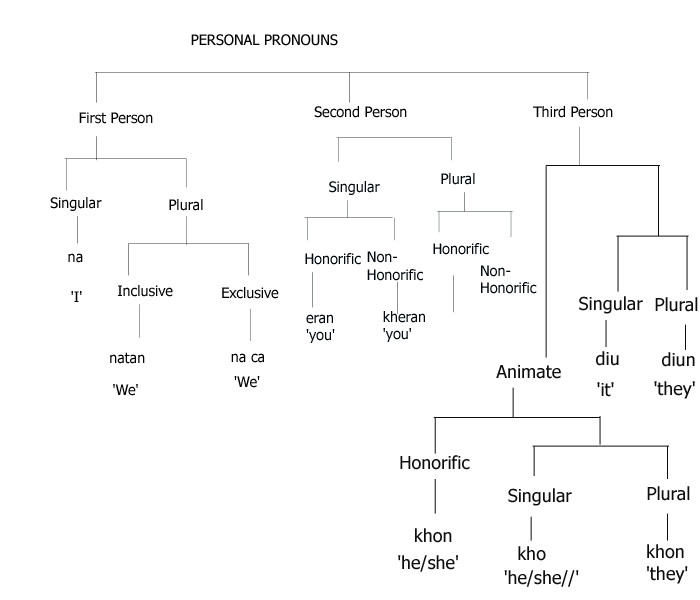PERSONAL PRONOUNS
|

|
| 3.1.3.2. |
Interrogative
Pronouns
|
|
The following are the : basic interrogative pronouns used in
order to ask -wh questions. |
či |
‘what’ |
su |
‘who’ |
| nam |
‘when’ |
gar |
‘where’ |
gaw
|
‘which/what’
|
ciya
|
‘why’
|
|
The forms su and či
are used when the noun phrase in the subject
position is questioned. The difference in the use of su and
či
is that su is used when the noun in the subject position is
human and či
when the subject is non-human. The following are
the forms with various case suffix.
|
| su |
‘who (human)’ |
| sua |
‘(to) whom’ |
| sui kana |
‘from whom’ |
| sua ~ sua phia |
‘for whom’ |
| suika |
‘on whom’ |
| gaw |
‘which’ |
| gawa |
‘to what/which’ |
| gaikana |
‘from which’ |
| gai phia |
‘for what/which’ |
gaika
|
‘on what’which’
|
|
The pronouns nam and gar
are used when the time and place adverbs are questioned.
ciya is used when the reason is asked, gaw is used as an
adjective as well as a noun.
|
3.1.3.3.
|
Demonstratives |
There are demonstrative pronouns as
well as demonstrative adjectives in Purki. The demonstrative
adjectives occur always with nouns i.e. in the order of
occurrence the demonstrative adjectives precede the nouns. The
demonstrative pronouns make three way distinction. The pronoun
diu is used when the
|